"Darren Dewrance went above and beyond my expectations in sourcing me my perfect role. I was kept in regular communication with Darren and he worked extremely hard on securing my dream job."
Russell Sealy, Candidate

The Employer’s Guide to Second Interviews in 2025
Gone are the days when a single interview was enough to secure the right hire. In today’s competitive job market, second interviews are standard practice—and for good reason. Whether you’re narrowing down two strong candidates or seeking final confirmation before making an offer, a well-structured second interview ensures you make an informed, bias-free decision.
This guide walks you through the purpose of a second interview, how to structure it effectively, and the key questions to ask—helping you secure the best talent for your business.
Why Are Second Interviews Essential?
First interviews serve as an initial filter, assessing basic qualifications, cultural fit, and communication skills. But the second interview is where you dig deeper:
- Validate first impressions – Does the candidate still align with your expectations?
- Assess problem-solving in depth – How do they handle role-specific challenges?
- Evaluate long-term potential – Are their ambitions compatible with your company’s growth?
- Clarify practicalities – Salary expectations, notice periods, and benefits.
For example, if hiring a Sales Executive, a second interview lets you explore:
- Their approach to handling objections and closing deals.
- How they build rapport with customers.
- Their resilience in high-pressure sales environments.
How to Structure a Second Interview in 2025
A clear structure ensures consistency and fairness. Here’s a step-by-step approach:
1. Welcome & Introductions
If additional team members are joining, introduce them and explain their role in the hiring process. This sets a collaborative tone.
2. Recap & Build on the First Interview
Briefly summarise key takeaways from the first meeting, then transition into deeper discussion points.
3. Role-Specific Tasks or Presentations
If applicable, assess their skills through:
- A sales pitch (for commercial roles).
- A case study analysis (for strategic positions).
- A technical test (for IT or engineering roles).
4. In-Depth Competency & Behavioural Questions
Now is the time to explore:
- Problem-solving – "Tell me about a time you turned around a failing project."
- Cultural fit – "How do you handle conflicting priorities in a fast-paced environment?"
- Motivations – "What would make you choose our company over a competitor?"
5. Candidate Questions
Strong candidates will have prepared questions—answer thoroughly to reinforce their interest.
6. Logistics & Next Steps
Discuss:
- Notice periods & availability.
- Salary, commission, and benefits.
- Potential offer timelines.
Key Second Interview Questions for 2025
Go beyond standard questions with these targeted prompts:
- "What would your first 30 days in this role look like?" (Tests initiative & planning.)
- "Describe a time you persuaded someone resistant to your idea. How did you approach it?" (Assesses influence skills.)
- "How do you stay motivated during repetitive tasks?" (Important for high-volume roles.)
- "What’s your approach to learning new systems or processes?" (Crucial for tech-driven industries.)
- "Where do you see yourself in three years, and how does this role align?" (Evaluates career ambition.)
Should You Discuss Long-Term Ambitions?
Absolutely. Top talent wants growth opportunities. If a sales candidate says, "I aim to be a team leader within three years," that’s a positive—it shows drive. However, be transparent about progression timelines to manage expectations.
Post-Interview: Making the Decision
After the second interview, you typically have three options:
- Make a conditional offer (subject to references or checks).
- Debrief with colleagues and extend an offer to the top candidate.
- Arrange a final informal meeting (e.g., over coffee) to assess cultural fit in a relaxed setting.
Pro Tip: Use structured scoring to compare candidates objectively, reducing unconscious bias.
Final Thoughts
A well-executed second interview minimises hiring mistakes and secures the best talent. By focusing on deeper competency assessments, cultural alignment, and clear communication, you’ll make decisions based on evidence—not just gut feeling.
Employer Advice Categories
Navigate our other Employers Advice categories by clicking the following icons:
Date published: 6th August 2025

by Rob Scott
Managing Director

About the author
Rob Scott
Please call us to discuss your vacancy
From our blog
Our employers say...
Our candidates say...




